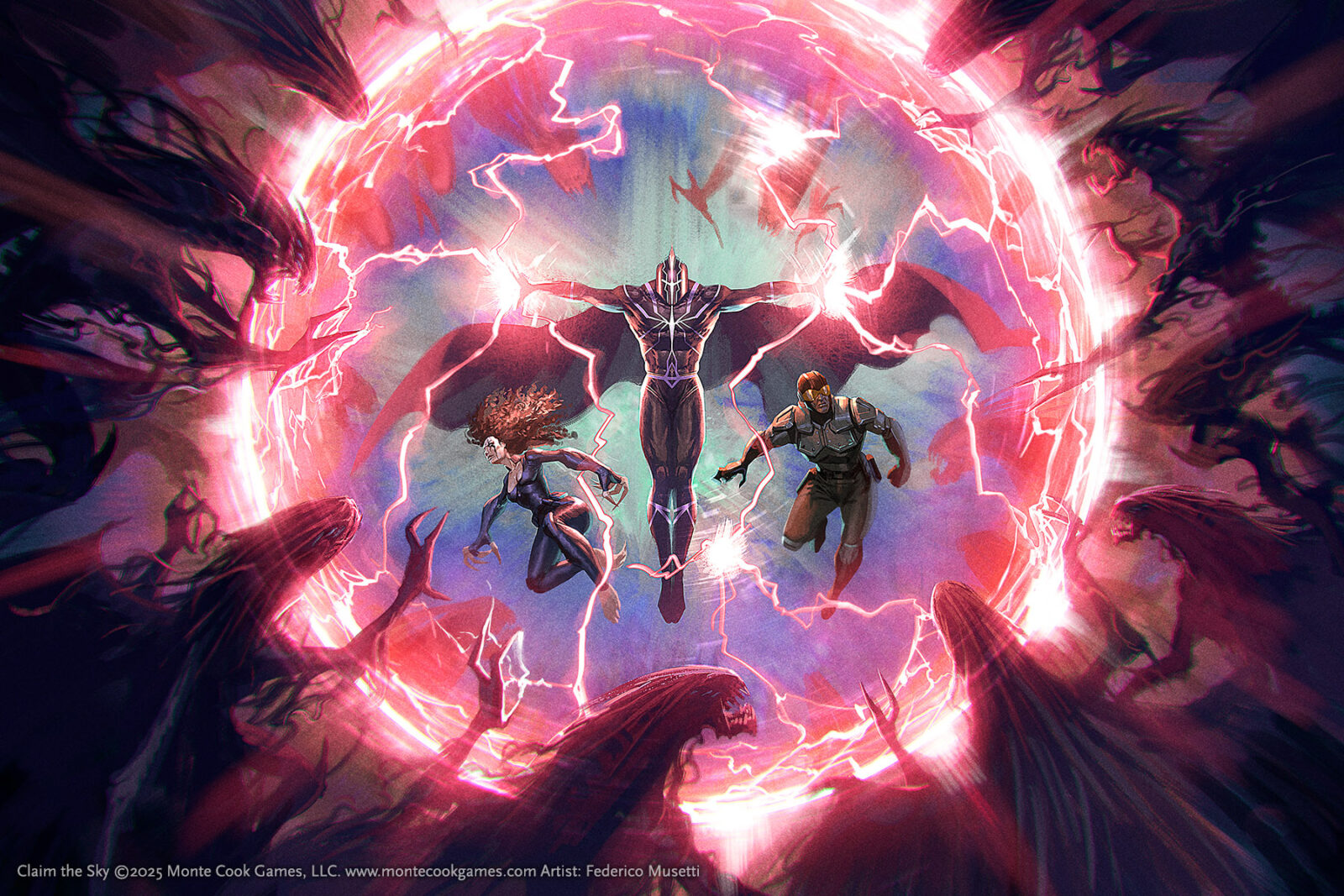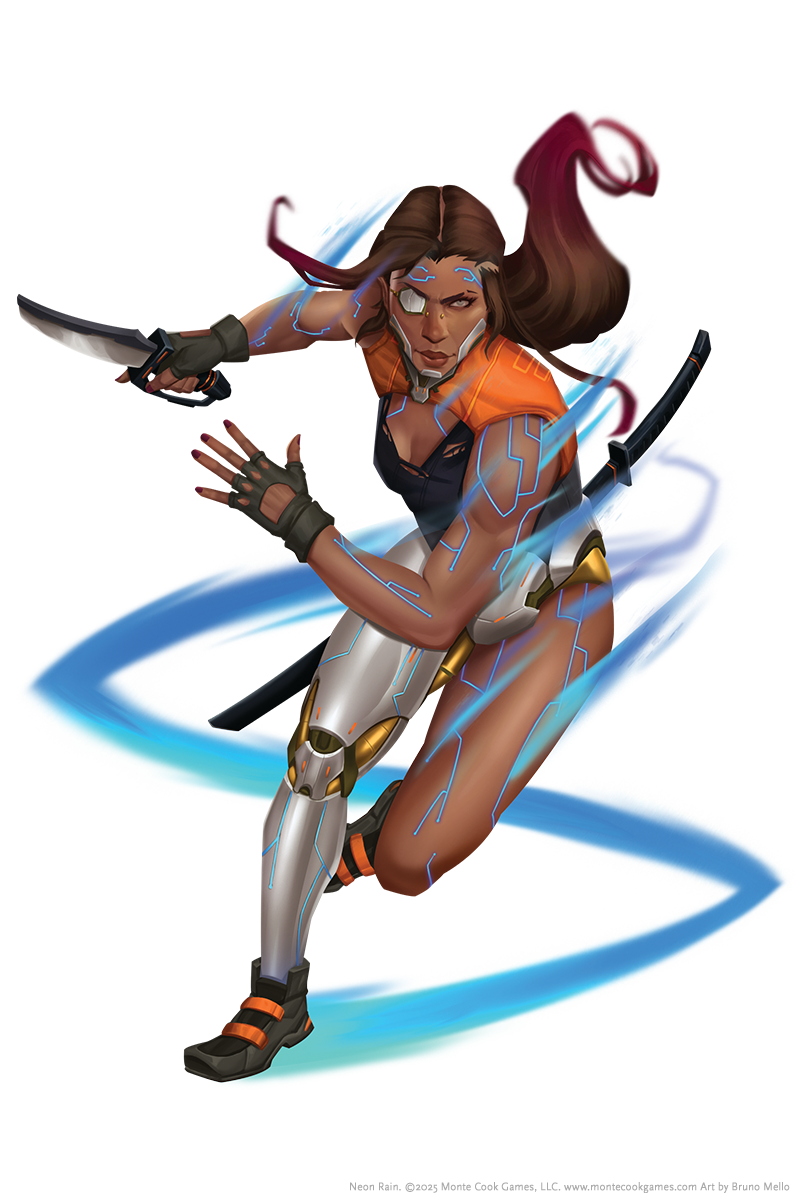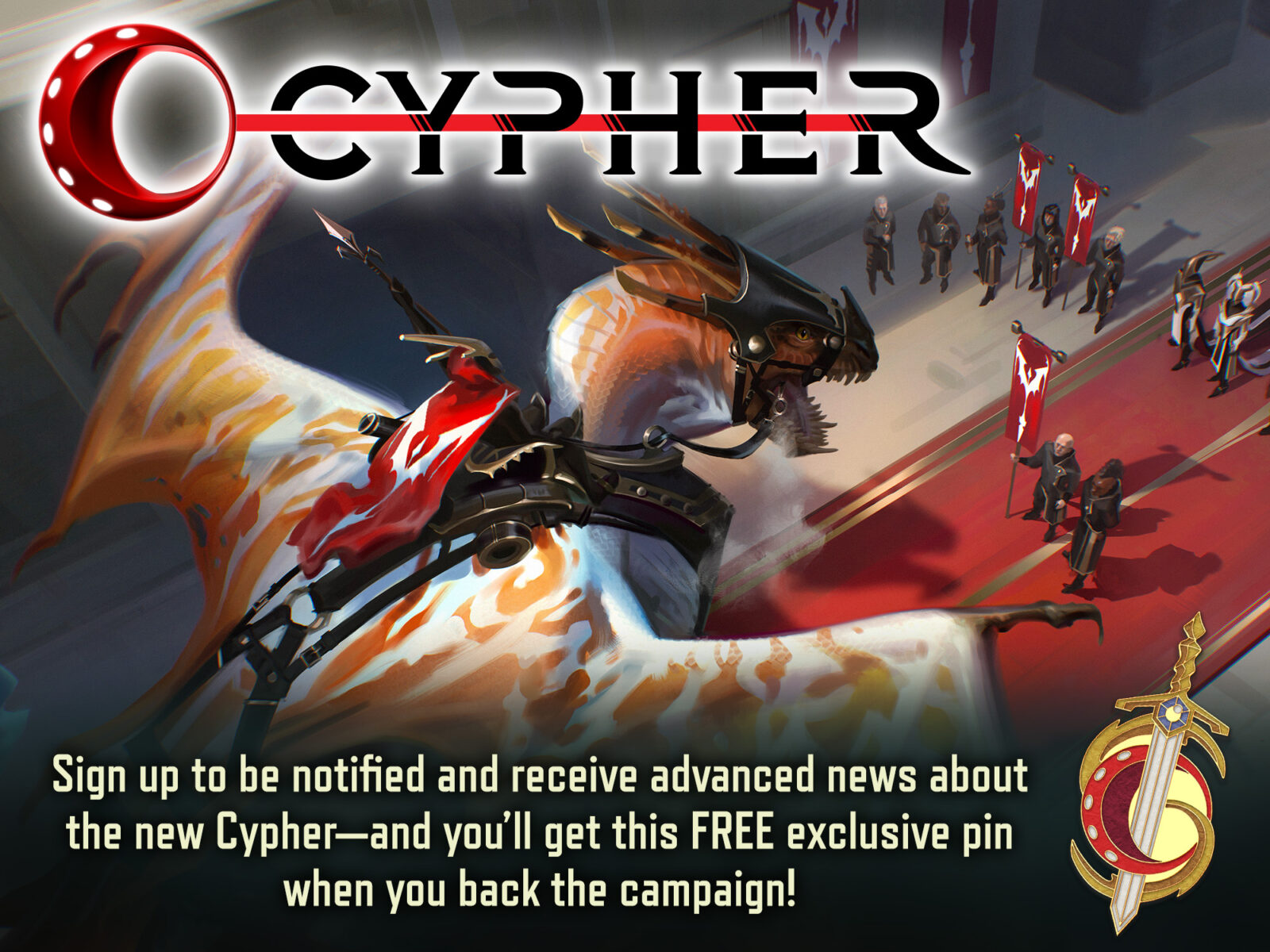Big changes are coming to the Cypher System! You can learn more here—and sign up to be among the first to get advance information and details (and be notified when the campaign launches). In this series of design diaries, Monte talks about the changes we’re making and why we’re making them.
Games, obviously, are meant to be fun. And yet we still put up with a lot of things that many of us don’t really find fun. Part of my job is to find solutions for these things.
I hate time tracking, for example. If your ability that allows you to hover in the air lasts for 5 rounds or turns, that basically means you get to play the game in an interesting way five times and then the game (not you) decides you’re done. And that requires you to keep track of those five turns. Not horrible, but you’ve got to do a little record keeping, and if you’ve got a couple different abilities like that, you’re tracking multiple things at once.

But at least a turn or a round is a measurable, easily defined game mechanic. If you’ve acted five times, five rounds have gone by. Straightforward. How long is that in the story—in the reality of the world? If someone in the game world is clocking your character with a stopwatch, how much time passes?
Honestly, who cares? It’s probably about a minute, but it might be a minute and a half or it might be 45 seconds. It’s very likely not vital to the story precisely how long those actions take. It’s like a single short scene in a movie. Determining how much time has passed, even when measured in rounds, doesn’t have a huge impact on the game compared to the trouble it takes to track those rounds.

However, often in games, including Cypher System, you get abilities that last a minute, or an hour, etc. In other words, the games use narrative time to track the duration of the mechanical effect. There’s already an awkward transition involved. Converting game mechanic durations to narrative time passing in the game is like having to translate one language into another. In the game, the rules probably tell you how long it takes to walk across a room in terms of actions, but how many minutes does it take to walk down the street? Likely not covered in the rules.
“Has a minute passed since we exited the starship?” a player might ask. “Um, I guess so?” is likely the GM’s answer. Even if there are precise amounts of time associated with rounds, in the middle of a moment of rather mundane action like getting off the spaceship and walking through the station to get to the captain’s quarters, the GM hasn’t been tracking them. To reduce every single action a PC takes that way would quickly get tedious.
Now, in Cypher, we’re already abstracting distance (using Immediate, Short, Long, and Very Long ranges rather than specific feet or meters). So why be concerned about precise time tracking? Better still, in Cypher we give players the agency to determine when they try harder in an action by applying Effort. What if we could do both with durations?
As we’ve been tinkering, we’ve made it so most durations last until you take your next 10 minute or longer recovery action. Recovery actions are used to restore points you’ve spent from your Pools, so they’re important—but the player decides when they happen, not the rules, and not the GM. That means most durations last as long as the player wants. It also means that if you’ve got multiple effects in play, they all have the same endpoint. It also means that players are often faced with interesting decisions—do I get my points back, or do I try to go without a bit longer so I can have my effects stay active? You might really want to keep flying or remain fire-resistant or stay extra strong all day long, but you need points in your Pools to act effectively.
And of course, because it’s Cypher, the GM can decide it would make the story more interesting to have the player’s effect end prematurely, in the same way that athe rope frays when the hero in the movie is climbing it, or they find they only have one match left to get the fire started.
Speaking of which, in the spirit of minimizing bookkeeping, you can also just not worry about how many arrows are in your quiver, bandages are in your first aid kit, or similar things. I mean, you can worry about it, if that’s your thing, or the GM can just use a GM intrusion to tell you you’ve only got one bullet left and you’d better make it good. In other words, we do away with bookkeeping and tracking of all kinds with narrative solutions in the players’ and the GM’s hands.
And for a game like Cypher, that’s where it should be.

Sign up and be among the first to get advance information and details about the new edition of Cypher (and be notified when the campaign launches).
If you love game design, you might also be interested in Monte’s Substack, RPG Design Theories!